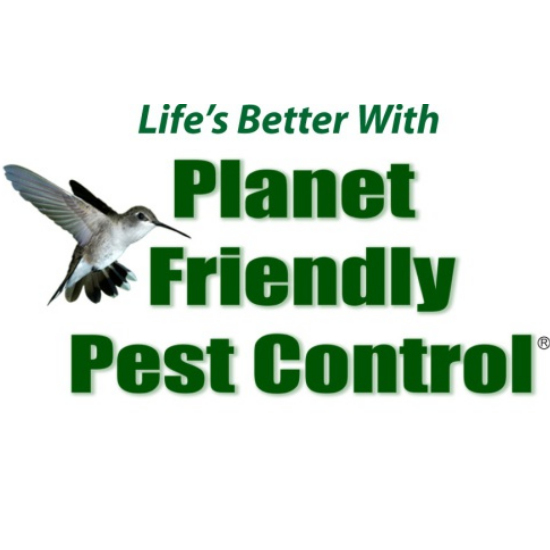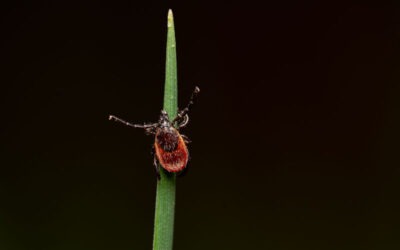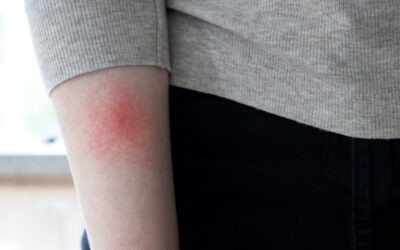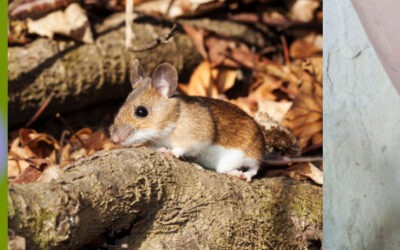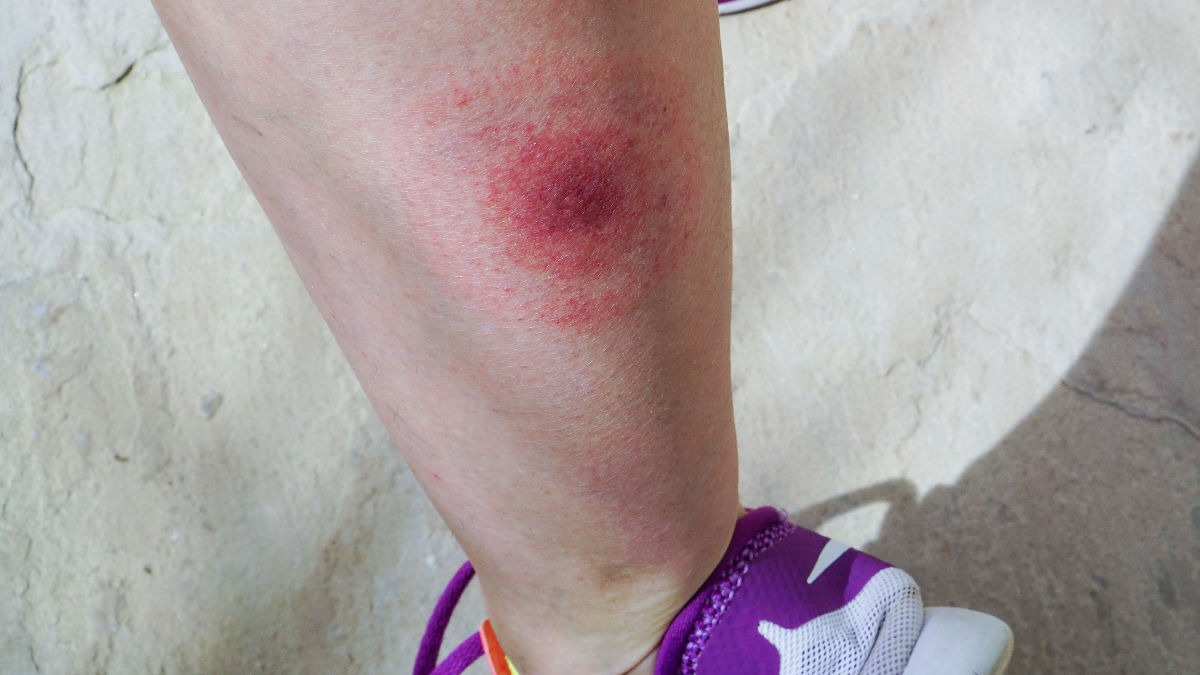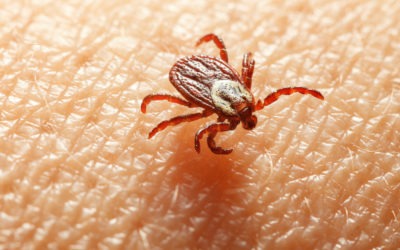
Hear From Our
Happy Customers!
With over 250+ 5 star reviews, rest assured you’re in good hands with Planet Frienldy Pest Control
Eco-Smart No-Spray treatments are the most effective methods for keeping your home’s outdoor spaces healthy while eliminating ticks. We serve Southern Maryland and Northern Virginia with tick control and general outdoor pest control. We understand the tick life cycle and how to keep your family safe.
Spend six minutes with Gene as he explains the connection between ticks, mice and Lyme disease and how the Planet Friendly Pest Control tick treatment program is done. This is worth watching!
How to Get Rid of Ticks
Transcript of Gene’s video on how to get rid of ticks:
Hi, Gene here. I’d like to invite you to spend a few minutes with me as we talked about the relationship between ticks, mice, and Lyme disease. Meet Ixodes scapularis, otherwise known as the black-legged or deer tick, which is the main vector of Lyme disease and Powassan virus to humans.
Understanding the tick lifecycle helps us create pest control strategies to prevent the spread of disease to humans and our pets. Deer ticks undergo a two-year, three-stage lifecycle. Adult female ticks lay eggs on the ground in the spring. Adult females may carry Lyme disease but their eggs do not.
The eggs hatch into larvae during early summer and become infected with disease as they feed on infected mice. Mice are the primary reservoir hosts for the organisms that cause disease. The tick larvae molt to nymphs during the fall or the following spring. When the nymphs feed late spring or early summer, their hosts may become infected.
Humans are accidental hosts. Most cases of Lyme’s occur from late spring through summer. Of all tick stages, the nymph is the primary vector for transmission of disease to humans. In the fall, nymphs molt to adults that feed on white-tailed deer but rarely on humans.
White-tailed deer do not become infected with Lyme disease but amplify the tick population by providing a blood meal for adult ticks. Adult male and female ticks mate on the deer. The following spring, adult female ticks lay eggs, and the cycle is repeated. To simplify, adult ticks live mainly on deer, and females lay eggs on the ground in the spring.
The tick eggs then hatch in the spring and become larvae. The larvae then feed on mice and become infected with disease. It’s important to know that mice are the primary reservoir hosts of diseases. Once the tick larva has a blood meal, they drop to the ground. The next spring, the tick larva becomes a nymph.
It is this stage of the tick which mainly infects humans and their pets. When we show up at your home to do the tick treatment, the one thing we do not do is slather pesticide all over your property.
Our tick treatment is very specific, it’s very focused, and we look at three things. We kill non-attached ticks, we kill the larval-stage ticks that are attached to mice, and we focus on reducing rodent populations against the house. ♪
To treat and target the non-attached ticks, which are the ticks in the vegetation that are waiting for a host to walk by so they can grab onto them and get a blood meal, we target these ticks by focusing on transition zones, which are the spaces between the shady area and the bright sunny lawn.
That might be a space between the tree line, it might be a space between the neighbor’s house, it might be a space between the mature planting bed and the lawn. All of these places are transition zones, and what we do is we come in with a granular clay-based product, is very effective for targeting ticks. We put down…it’s about an 8 to 10-foot-wide band all the way around the property.
We’re not out, you know, slathering stuff around, killing everything, we’re trying to be very specific and very focused on targeting non-attached ticks. When we target attached ticks that are actively feeding and taking a blood meal from mice, we use what’s called a tick tube.
So what happens is once that band has been put down, we go outside the band around the transition zones and we install tick tubes about every 50 linear feet. What a tick tube is, is a piece of cardboard about six inches long.
It is stuffed with natural cotton that’s been lightly treated with a 7.5% permethrin. The mice find these things, they take the cotton, they use it as bedding material, they lay in it, their babies lay in it. And as they’re laying in this material, they are self-medicating with permethrin and they are killing all of the ticks that are attached to them.
It is very effective. Well, the last part of our tick program is reducing rodent populations directly around the foundation of the home. We do that with rodent bait stations, and there’s usually about four stations per house.
It’s a double benefit because during the fall, winter, and spring, mice are not getting into the house, we go into the next pest season with a reduced rodent population, and that put us way ahead against the fight on ticks.
Include your outdoor living spaces in your pest control plan.
An outdoor pest protection plan for tick control is a must. Your yard is host to many animal visitors. Squirrels, mice, rabbits, fox, opossum, raccoon and deer are common hosts for ticks. These parasites and pests are vectors for serious diseases that affect people and pets.
Make sure your outdoor spaces are protected.
TERMINATE TICKS TODAY
Finding a tick on your child or your dog is upsetting. We know how to get rid of ticks in your yard while still respecting the environment. If you live in Southern Maryland ( Anne Arundel, St. Mary’s, Calvert or Charles County) or Northern Virginia ( Alexandria, Arlington, Annandale, McLean and more ) TAKE ACTION NOW
Our Thoughts on Tick Control and Outdoor Pest Control
Tick Treatments for Spring & Summer: Essential Steps to Lyme Prevention
Why Spring and Summer Matter for Tick Control Black-legged ticks, also known as deer ticks, are the primary vectors of Lyme disease. These ticks are most active during spring and summer, making these seasons critical for intervention. The lifecycle of black-legged...
How Reducing White-Footed Mice Populations in Fall & Winter Lowers Lyme Disease Risk
Reducing white-footed mice populations in the fall and winter can be a significant strategy in controlling Lyme disease risk. These rodents play a crucial role in transmitting Lyme disease to ticks, which can then infect humans. By implementing effective control...
Understanding Lyme Disease: The Role of White-Footed Mice and Black-Legged Ticks
Introduction to Lyme Disease Lyme disease is a tick-borne illness caused by the bacterium Borrelia burgdorferi, primarily transmitted to humans through the bite of infected black-legged ticks (Ixodes scapularis) in the northeastern, midwestern, and southeastern United...
The Complex Relationship Among White-Footed Mice, Borrelia burgdorferi, and Black-Legged Ticks in Lyme Disease Transmission
Lyme disease is a significant public health issue, particularly in areas where the disease-carrying bacterium Borrelia burgdorferi is prevalent. The cycle of transmission involves multiple species, but three primary players are crucial in the spread of Lyme disease:...
Borrelia burgdorferi and Lyme Disease – Understanding the Bacterium Behind the Infection
Lyme disease is a significant infectious disease that primarily affects humans and animals. The bacterium responsible for Lyme disease, Borrelia burgdorferi, is a spirochete that is transmitted to humans through the bite of infected black-legged ticks, commonly known...
What Instantly Kills Ticks? The Only Guide You Need
For Pet-Safe Tick Control Click Here It's summertime! You know what that means: sunshine, cool pools, and of course, really ugly ticks. Yep, you heard it. Ticks. Just the word can make your skin crawl in disgust. Not only are ticks gross, but they can cling onto and...
Frequently Asked Questions (FAQs) about Eco-Smart No-Spray Tick Control & Outdoor Protection
1. What is no-spray tick control?
No-spray tick control involves methods to eliminate ticks without using widespread pesticide sprays. This approach focuses on targeted treatments and environmental modifications to reduce tick populations effectively.
2. How does Planet Friendly Pest Control manage ticks without spraying?
Planet Friendly Pest Control employs a focused strategy that includes:
- Targeting non-attached ticks: Treating specific areas where ticks are likely to be, such as transition zones between shady areas and sunny lawns.
- Addressing larval-stage ticks on mice: Implementing measures to eliminate ticks feeding on mice, which are primary carriers of tick-borne diseases.
- Reducing rodent populations near homes: Implementing strategies to decrease the number of rodents around residential areas, thereby reducing tick hosts.
3. Why is it important to include outdoor spaces in a pest control plan?
Outdoor areas often host animals like squirrels, mice, rabbits, foxes, opossums, raccoons, and deer, which can carry ticks. These ticks are vectors for serious diseases affecting humans and pets. Protecting outdoor spaces helps prevent tick-borne illnesses.
4. What diseases can ticks transmit?
Ticks can transmit several diseases, including Lyme disease and Powassan virus. The black-legged or deer tick (Ixodes scapularis) is a primary vector for these illnesses.
5. How does the tick life cycle influence control strategies?
Understanding the tick life cycle is crucial for effective control:
- Spring: Adult female ticks lay eggs on the ground.
- Early Summer: Eggs hatch into larvae, which feed on mice and may become infected with diseases.
- Fall/Spring: Larvae molt into nymphs, which can transmit diseases to humans and pets during feeding.
- Fall: Nymphs molt into adults, primarily feeding on deer.
Targeting ticks at various life stages, especially during the nymph stage, is essential for reducing disease transmission.
6. What are transition zones, and why are they significant in tick control?
Transition zones are areas between shady regions and sunny lawns. Ticks often inhabit these zones, waiting for hosts to pass by. Focusing treatments on these areas can effectively reduce tick populations.
7. How can homeowners reduce tick habitats in their yards?
Homeowners can take several steps to make their yards less attractive to ticks:
- Maintain the yard: Regularly mow the lawn and remove leaf litter.
- Create barriers: Use mulch or gravel to separate wooded areas from lawns.
- Manage wildlife: Discourage deer and other wildlife that can carry ticks from entering the yard.
- Reduce rodent habitats: Remove woodpiles and other potential nesting sites for mice.
8. Is Eco-Smart no-spray tick control safe for pets and children?
Yes, no-spray tick control methods are designed to be safe for pets and children. By avoiding broad pesticide applications and focusing on targeted treatments, these methods minimize exposure to harmful chemicals.
9. How often should tick control treatments be applied?
The frequency of treatments depends on various factors, including tick activity levels and environmental conditions. Consulting with a pest control professional can help determine an appropriate treatment schedule for your specific situation.
10. Can Eco-Smart no-spray tick control methods prevent all tick-borne diseases?
While no-spray tick control methods significantly reduce the risk of tick-borne diseases, no method can guarantee complete prevention. It’s essential to combine these methods with personal protective measures, such as wearing appropriate clothing and performing regular tick checks after spending time outdoors.
